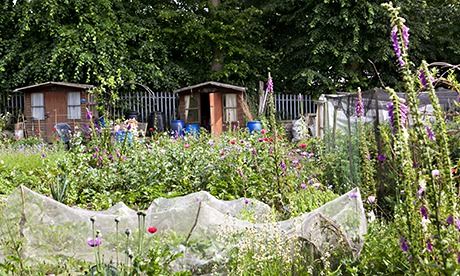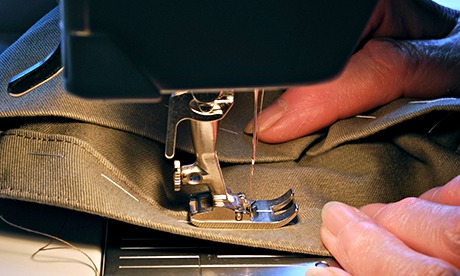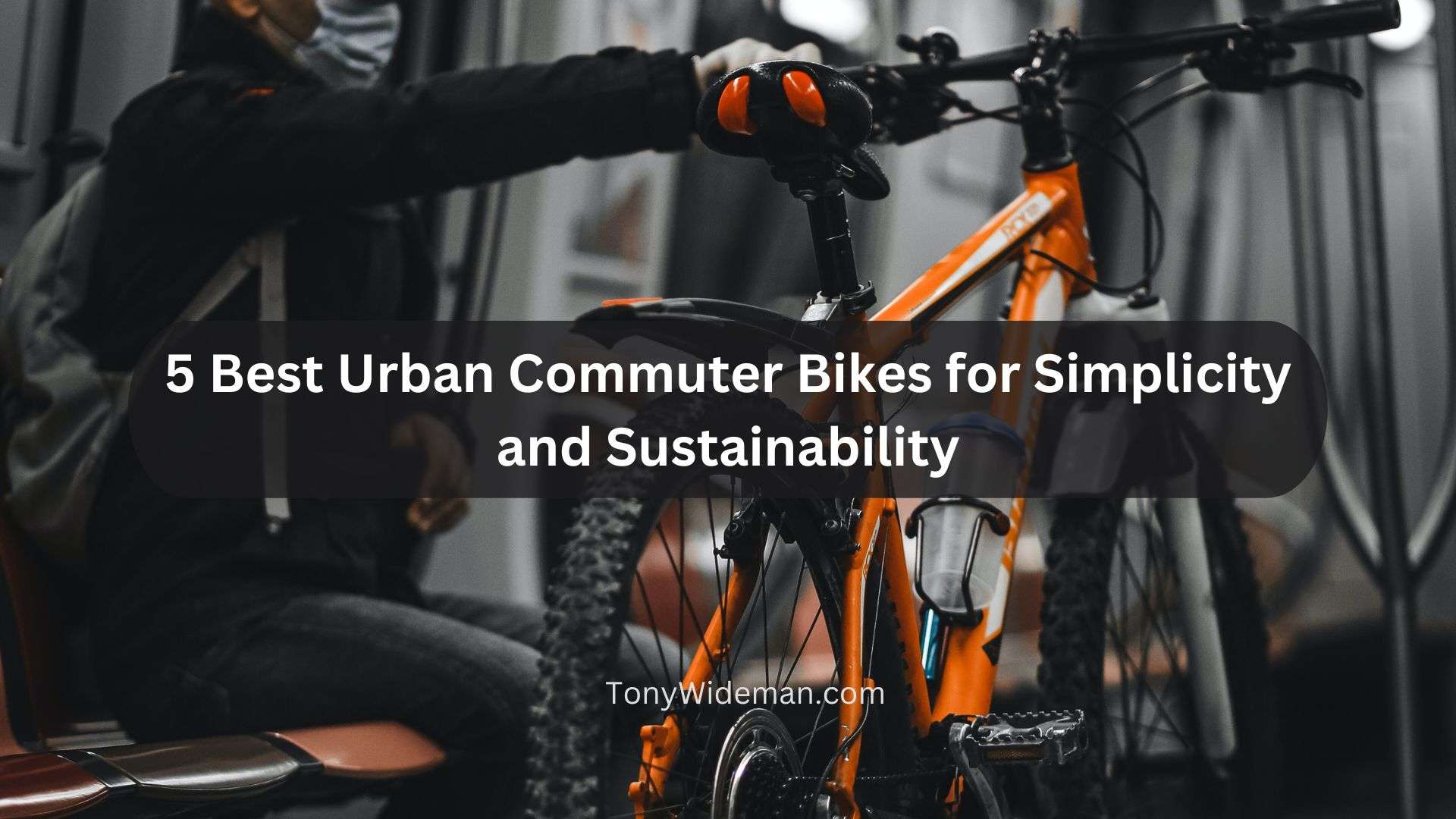Guerrilla Gardening Movement: Freecycle, and Swap Till You Live For Free

.
Guerrilla gardening movement, Freecycle, and swap till you drop: how to live for free Generation Y struggles for cash – but there are lots of ways to save money. From urban foraging to canoeing to work, here’s how to wring the most out of the free economy.

It’s 8 am on a Saturday morning, and four men are digging in the local park. One furtively scans his surroundings, while another jams his spade through the hard soil.
A third sprinkles something over the ground, and the rest fill in the hole quickly, leaving a mound of freshly turned earth. These men are not attempting to dispose of a dead body.
They belong to a guerrilla gardening movement group and they’re trying to plant enough herbs to last the community through the summer.
Nearly 18% of all 18- to 24-year-olds are out of work, and last year saw 3.3 million 20- to 34-year-olds move back in with mom and dad, according to Office for National Statistics (ONS). Some 20% of working 16- to 25-year-olds are also suffering from underemployment – working fewer hours than they would like.
It’s difficult to thrive as a young person when real wages are falling 2% year on year, and you’re sharing your kitchen with your dad and the family dog.
But some are trying to make the most of a bad situation. With spare time comes the greater opportunity for imaginative resource gathering – guerrilla gardening movement, for example. Professor Fleura Bardhi, from Cass Business School, believes that a growing number of people are being attracted to the “sharing economy”.
Global consumption trends are changing, and “gift exchange” – sharing food, accommodation, and transport – is a way to live more economically.
As young people struggle to survive, let alone save, the numbers following a freegan (freegan.info) way of life are also on the rise. Everyone wants to save a buck or two, and freeganism encourages its followers to fight against excessive consumerism and food wastage by reclaiming food that’s been discarded: cue dumpster diving and foraging.
Here are some ways to make the most of the free economy, live life to the full, and still have a little change to spare.
Guerrilla Gardening Movement
Veggies growing up walls and down drains? Following the belief that anywhere can be utilized and beautified, guerrilla gardeners plant wherever greenery could be sustained, whether that’s on a roof or a roundabout.
Richard Reynolds began his blog in 2004 as a way of recording his planting activity around London. Reynolds thinks that gardening in this way is “immensely sustainable, as long as the gardener is committed and the landowner quietly tolerates it”.
The market town of Todmorden, West Yorkshire has become well known for its guerrilla gardening movement: Incredible Edible Todmorden plants edibles around town on grass verges and on the grounds of the local fire station.
Best of all, anyone can pick the herbs they grow, making guerrilla gardening as much about community as it is about a tasty garnish.
Skip-diving
There’s currently a debate raging about whether skip-diving or swiping what the supermarket considers to be out-of-date, clashes with the law. Technically, “dumpster diving” isn’t illegal, but drivers can be pulled up for trespassing on private property, so keep an eye out for loitering security guards. Take a peek at the Frugal Freega n’s videos on YouTube for some freegan inspiration…
Forage
Go to a high-end restaurant and you’ll notice that foraging is very “now”. But not all foragers are Michelin-starred chefs, nor do they all live near samphire-rich estuaries. In Sheffield, locals keen to forage fruits have set up a project called Abundance.
The fruit is picked from private growers with a surplus of, say, plums (with the permission of the owner) and is then distributed to those who need and want the fruit. Similar Abundance projects can be found UK-wide, including in Nottingham and Birmingham.
Walking around Elephant and Castle, an inner-city area in London better known for its 1960s tower blocks than parkland, I didn’t find any fruit, but I did locate some wild garlic, nettles (great for tea and soup), and grass.
Clearly, I’d have had more luck if I’d gone foraging with Penelope Greenhough, founder of Pickling Peckh am: the urban forager’s guide. She reckons that “in the season it’s possible to survive on basics [like rice or pasta] supplemented with foraging”.
Ask market traders
Vendors are often left with a surplus of food at the end of a day’s trading, and, like anybody who respects food, are often loth to throw it away.
It’s best not to just take, though; market stallholders are keeping the community buzzing and need to earn a living, too. That said, popping along at the end of a trading day can result in an excellent assortment of produce.
On a recent trip around southeast London’s greengrocers, I collected spaghetti, lettuces, soft, fragrant tomatoes, and plump avocados, just approaching ripeness.
Hunt
Away from the city, adding meat to a freegan diet is possible – if you get permission from a landowner first. Phillipa Meek from County Durham followed a freegan lifestyle for nearly eight months, and, after seeking permission from a nearby farmer, hunted for rabbits and grew food in her back garden.
It’s legal to hunt rabbits and rats under UK law, but how much pleasure you’ll get from a rat risotto is debatable. Check out bertc.com/subfive/recipes/cookingrats.htm for some classic rodent recipes.
.

.
Rent an allotment
City dwellers with green fingers who lack garden space could consider signing up for an allotment to seed their own salad. While there are often long waiting lists for allotments, they’re normally relatively inexpensive:
Researchers at the University of Leicester estimated that the average annual rent is around 15p per square meter. Check out Allotment Garden for tips on what to do with your new patch of earth.
Go to temple
If the thought of skinning rabbits and combing the hedgerows for edible mushrooms all seems a bit too Good for Life, then there are other options.
Churches, mosques, and temples all run soup kitchens to help the truly needy, but Rajinder Singh Bhasin, the president of the Central Gurdwara Temple in west London, says that it is the Sikh tradition to offer hot food to “all visitors without discrimination of sex or creed”.
After evening congregation, his temple serves up to 170 free vegetarian hot meals, and on Sundays, that number rises to 350.
Clothing
Freecycle everything
If designer Gucci isn’t top of your wishlist, then clothing yourself for next to nothing isn’t as tricky as you might imagine. Clothes are more shareable and riper for “gift exchange” than other essential living items, which makes sourcing garments in the free economy easy.
Sites like the Freecycle Network, a grassroots not-for-profit organization, and CraigsList offer up white goods, furniture, and clothing for no cost.
The premise is simple: specify where you are and what you’re after, and chances are you’ll find someone giving it away. A quick search for “women’s clothes” came up with a “donator” just 800m away from my flat.
Some adverts are vague – “bag of clothes”, “women’s coats” – and some specific – “eight pairs of cut-off size 8 Levis”. Free items, with stories behind them; what’s not to love?
Swap until you drop
For clothes lovers who want to try their luck, Mrs. Bear’s Swap Shop lets you change your unwanted clothes for items others have brought in.
This London-based swap shop makes sure that people get like for like, and only clean, wearable items can be swapped.
There’s little chance you’ll bring in a cute pair of dungarees and walk away with waterproof fishing trousers – unless that’s what you’re after, of course.
Founder Joanne Walters says: “My customers are experts in thrifty style – a lot of them say they don’t buy clothes anymore and are bored with the poor quality of mass production.”
There are swap shops all across the UK from the Swansea Swap Shop to Swapz, an online marketplace that encourages people to exchange rather than bin their items.
.
 .
.
Make do and mend
When I searched for “women’s clothes” on Freecycle, a huge number of adverts appeared for “bags of scrap material”. The bag I collected from an old lady in North London was bursting with trimmings from tasteful curtains and upholstery.
For creative stitchers, it would have been a godsend, but if, like me, you’re more likely to stab yourself with a needle than creating a Sound of Music eight-outfit masterpiece, it might be worth learning the basics first.
Luckily you can do this for free. Sites like Skillshare and Professor Pin Cushion provide free lessons on how to tailor and work a sewing machine.
Housing
Low-cost central living
If you don’t fancy living in a squat but want some low-cost, city center accommodation, take a look at Camelot Property Management. They offer a legal way to bed down in vacant properties – for a small price of course.
Camelot advertises its services to property owners as a way to prevent “arson, squatting, vandalism, and theft”.
The renter is known as “live in, guardian security” but don’t worry – there’s no uniform or truncheon-wielding required. For properties in central locations, the costs are pretty low.
A room in a former care home in Bristol starts at £30 a week including all bills, and, if you don’t mind resting your head in a former police station, rooms are available in London’s exclusive W1 postcode from £85 a week. This is an area where the average cost of a room in a flatshare is £260 per week.
One anonymous user of Camelot said that he saw “Camelot as being a sustainable, viable alternative for people who don’t mind not knowing when they are going to have to move”.
According to Fiona Hanley, Camelot’s UK marketing manager, nearly half of the people using Camelot are between 25-35. “It’s mainly creative professionals, although we do get nurses and firefighters, too.”
Couchsurfing
If you want a roof over your head for absolutely no cost, then consider Couchsurfing. The original Couchsurfing website advertises hosts and houses across the world. In Slovenia, I once stayed with two sisters who loaned me a kayak for the weekend and paddled alongside me, pointing out kingfishers and otters.
All this in return for some stories of London life and a pot of vegetable soup I made later that evening.
It can be quite feasible long-term in the UK, too. Kathleen Cassidy describes herself as “nomadic” and, as she is not paid for her community work, has spent the last six months living in friend’s spare rooms and on their couches, housesitting, and Couchsurfing.
She rarely knows where she’s going to be living more than four weeks in advance and hasn’t spent longer than four weeks in one place, but says that it keeps her “survival instincts intact”.
When you don’t have an income, it can be hard to know what to offer to welcome hosts. Cassidy thinks it’s important to repay in kind by contributing to the cooking and cleaning, but she warns that being nomadic isn’t for everybody.
“It can feel like work because it’s another thing I’ve got to organize, but I love living with lots of different people. You’ve got to not care about having many possessions. As long as I’ve got essentials covered – food, shelter, and social networks – then I’m OK.”
House-sitting
If you don’t have a particularly large (or generous) social network, then accommodation for free is still possible. Try websites such as Mind My House and Trusted House Sitters, which bring together house owners and sitters from across the world, providing a ready-made opportunity for nomadism.
Live off the grid
Living self-sufficiently or in a commune can work as a longer-term way to cut costs. Some communes, like Beech Hill Community in Devon, grow their own food and have come up with imaginative ways to generate electricity and dispose of waste. For more information on communal living in the UK, Diggers and Dreamers is a great resource and has lists of communes by region in the UK.
Living off the grid with no electricity and no waste disposal is pretty tough to start with, but find an existing community to slot into and it’ll feel much easier – it’s estimated that 25,000 people in the UK follow this lifestyle.
Transport
Carpooling
Annual season tickets for trains rose an average of 2.8% this year so sharing a ride to work with a friend makes sense. Websites such as Lift Share and BlaBlaCar can help to make the ride even cheaper by getting more people in the vehicle. A next-day, one-way trip to Glasgow from Manchester costs just £20 via BlaBlaCar; by train, this journey would cost nearly £70.
.

.
Run, run, run
Council gym prices are said to have soared by £100 in the last 10 years. The answer is to run to work, according to The Marathon Handbook, whose slogan reads “Leave the Gym Behind”. Laura Price, a journalist from London, regularly runs to work: “I hate going on the tube at rush hour, and my 5km run gets me home even quicker.”
Scoot around town
Feed your inner child and save some bus money by investing in a micro-scooter. I had a go on a friend’s and crashed into a bollard, but not before I had been overtaken by a child. If, like me, you’re a little clumsy when it comes to small wheels, book yourself on to a scoot-safe course, but expect to be surrounded by minors whizzing about much more gracefully.
Samuel Diserens, an analyst from Oxford, uses his scooter to dextrously navigate traffic jams: “it’s easier to control a scooter than a bike. Plus, when I need to hop on the bus I just fold it up and put it in my bag.”
Canoe to work
Yes, you read that right. Thanks to Britain’s industrial heritage, our cities are criss-cross with rivers and canals, which makes using kayaks as an alternative form of transport a definite possibility.
Katy Hogarth, director of Moo Canoes, hopes to make water-borne commuting in the capital more feasible for those who prefer to share their commute with carp and terrapins rather than blank stares and sweaty armpits.
Moo Canoes is also working on creating “access points” for people to secure their kayaks too, and Hogarth adds that “equipment is improving, with high-end collapsible kayaks hitting the market this summer”.
However, she recommends starting with a club first as powerful tides on a river “shouldn’t be underestimated”. Kayaking London should be the first port of call to anybody considering kayaking as a feasible alternative to the London rat race, and Canoe England has a comprehensive list of clubs and opportunities in other areas.
..






